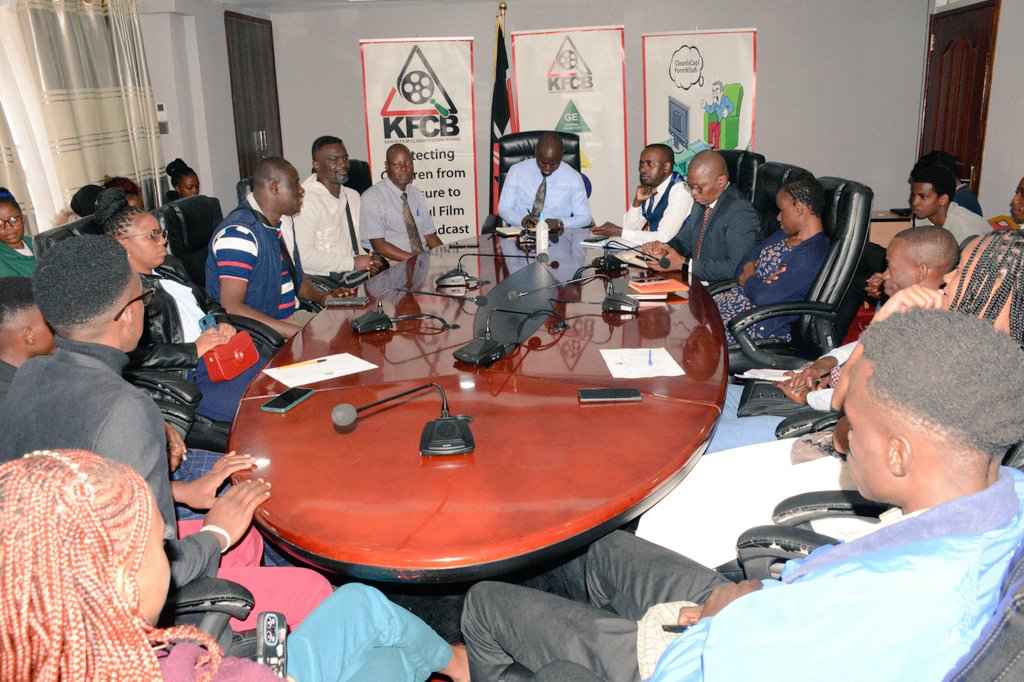
On 29th April 2025, the Kenyan government, through the Betting Control and Licensing Board (BCLB), launched a wide-ranging crackdown on gambling advertisements and illegal betting websites. The same day, the Kenya Film Classification Board (KFCB) and Communications Authority of Kenya (CA) were roped in to enforce complementary directives.
Together, these announcements mark the most aggressive intervention in years targeting a sector that has grown explosively – fuelled by mobile money, social media, and influencer marketing – but increasingly criticized for its regulatory gaps and societal impact.
BCLB Suspends All Gambling Advertisements for 30 Days
In a public directive signed by BCLB Chairperson Dr. Jane Mwikali Makau, all licensed gambling operators were instructed to immediately suspend all gambling advertisements and testimonials for 30 days.
The directive applies to:
- Television and radio adverts
- Social media campaigns
- Print ads and newspapers
- Outdoor ads such as billboards and branded transport
- SMS and app notifications
- Celebrity and influencer promotions
The board cited concerns that gambling was being misrepresented as a form of investment and that advertising during watershed hours (5:00 am to 10:00 pm) was putting minors and vulnerable people at risk.
Operators were also instructed to submit their ads for classification by KFCB, comply with responsible gambling messaging, and stop promoting rapid-win games like Aviator and crash-based gambling platforms.
KFCB Steps In – But Raises Legal and Strategic Questions
On the same day, 29th April 2025, the Kenya Film Classification Board (KFCB) issued its own directive enforcing BCLB’s order. All audiovisual gambling advertisements must now:
- Obtain a filming license via KFCB’s Technical Management System (TMS), and
- Be submitted for classification and approval under the Films and Stage Plays Act (Cap 222).
KFCB Acting CEO CPA Paskal M. Opiyo directed all media platforms not to air any gambling ads that had not gone through this classification process.
Why is KFCB involved?
This raises serious questions. KFCB is not an advertising regulator, and its core mandate lies in film and broadcast content classification – not marketing or consumer protection.
Kenya lacks a structured advertising regulation framework like the UK’s Advertising Standards Authority (ASA). In the UK, gambling ads are subject to CAP (non-broadcast) and BCAP (broadcast) codes. Kenya, by contrast, is in this new directive relying on an outdated law – the Films and Stage Plays Act (Cap 222) – which wasn’t designed for this kind of regulatory oversight.
If KFCB is now required to approve gambling ads, does that mean all ads in Kenya should pass through KFCB too? This weird enforcement approach is legally questionable and potentially opens the door to selective censorship.
Over 50 Illegal Gambling Websites Revealed
In another letter also dated 29th April 2025, BCLB submitted a list of more than 50 unlicensed gambling platforms to the Communications Authority of Kenya (CA) and Safaricom PLC, instructing them to take action.
These sites, such as: chezacrash.com (Paybill 600877), aviatorpoa.ke (Paybill 551555), pesapawa.com, pepea.co.ke, etc. are accused of taking deposits via mobile money and failing to pay out winnings, in clear violation of gaming regulations.
Blocking without legal backing?
BCLB directed CA to block access to these websites and Safaricom to suspend the listed Paybill numbers. However, this raises an important legal and digital rights concern.
There is no clear law in Kenya that allows a government agency to arbitrarily ban websites or block domains without due process. What legal threshold is being applied here? Where is the court order? Under what act is CA authorized to carry this out? The CA’s actions must be rooted in laws like KICA, the Computer Misuse and Cybercrimes Act, or the Copyright Act, and they are subject to constitutional requirements ensuring due process – typically requiring a court order or a clear legal basis
Blocking websites by directive, without a legal framework, is a dangerous precedent. It opens the door for politically motivated censorship in the future and highlights the need for judicial safeguards before taking such actions.
Is BCLB Just a Licensing Board?
This crackdown also calls into question the effectiveness of BCLB itself.
How did over 50 websites manage to operate publicly – with active mobile money integration – for months or even years before BCLB took action?
If the board only acts after public complaints or media attention, its role appears to be reactive rather than proactive. What monitoring mechanisms exist? Is BCLB simply a licensing body with no teeth to enforce day-to-day compliance?
The scale of rogue operators is not just a sign of user vulnerability – it’s a reflection of regulatory paralysis.
Multi-Agency Task Force Formed – Or Just Bureaucratic Redundancy?
To oversee the enforcement of gambling regulations, BCLB announced the formation of a Multi-Agency Enforcement Team. It includes:
- Ministry of Interior
- Office of the Attorney General
- Communications Authority of Kenya
- Kenya Revenue Authority
- Directorate of Criminal Investigations
- Kenya Film Classification Board
- Media Council of Kenya
- Financial Reporting Centre
- Betting Control and Licensing Board
That’s nine separate agencies – a clear sign that no single entity is capable of addressing the issue alone.
But is this task force a solution, or just a symptom of bureaucratic dysfunction? If one regulatory board with a modern mandate existed, would there be any need to loop in nine different bodies?
The formation of such a bloated committee suggests serious redundancies, fragmentation, and inefficiencies within Kenya’s institutional framework.
Lobbying and Influence: What’s Happening Behind the Scenes?
The focus on specific games like Aviator and the timing of this crackdown also raise questions about influence.
Leading up to these directives, Kenyan influencers had been calling for a crackdown on crash-based betting games. It’s unclear whether this pressure was entirely organic – or if a dominant player in the market is lobbying for tighter regulation to eliminate smaller competitors and consolidate their market share.
Without transparency, the public is left to wonder: Is this a moral cleanup, or a political-economic power play?
What Kenya Really Needs
While these directives may be well-intentioned, they expose gaping holes in Kenya’s approach to gambling regulation.
To fix this, the country urgently needs:
- A modern proper Gambling Control Act that consolidates all oversight into one law. I think the current lobbying and push is as a result of something in this regard.
- A single, empowered regulator with enforcement, compliance, and consumer protection capabilities
- A clear legal framework for online content takedowns and domain blocks, with judicial oversight
- A way more powerful Advertising Standards Body to set and enforce marketing codes for all industries – not just gambling.
- A rational approach to classification and censorship, where KFCB sticks to films and content, not ads
Conclusion
The events of April 29, 2025, mark a turning point – but also expose deep cracks in Kenya’s regulatory foundation. Unless followed by genuine legislative reform and institutional realignment, this will be just another high-profile sweep with little structural impact.
Without transparency, legal clarity, and consolidated authority, the gambling industry will continue to evolve faster than the laws meant to govern it.






